Anger, articulate and otherwise, percolated up through the speeches at Saturday’s rally for justice at the Legislature. The anger was directed at a succession of governments and a justice system, together perceived as coddlers of young killers. The message: when it comes to youthful perpetrators of violent crime, judges and legislators are milksops, afraid of ramping up minimum penalties and ambivalent about meaningful consequences.
No one there was ready to take up a vigilante stance, but the frustration of deferred justice was great enough to wonder about this, at least as a future subtext. Was this an option discussed around the tables of homes that had lost a son, daughter, friend? If so, entirely understandable, perhaps even cathartic.
I had the feeling though, sitting there on the edge of the small crowd, that people were wrestling with a Cohenesque, “things sliding in all directions” future. Not yet apocalyptic, but close. People were asking, how did we get here and where are we going? When murderers were doing one sixth of a twenty-five year life sentence, when cutthroats were getting out on bail and allowed to roam for two years before being called back to an ineffectual trial, when punks with bats take the conscious-life of an elderly man and are hand slapped and given warnings as they head out on their parole, where then is the light of the future?
There are other forces at work of course, economic and bureaucratic, but primarily, the gradual reduction of penalties for violent crime is a consequence of our increased sensitivity to victims. It’s not that we don’t recognize that those who have been maimed or killed, or those who have lost a son or daughter, sibling or friend, to violent crime are truly victims. It’s that we have also come to see that perpetrators of violent crime may also have been victims. And we believe justice isn’t done if a crime is taken only at face value. The “story” of violence and crime, we believe, is beneath the surface. As well, because we see the indicted as at least part victim, we believe in rehabilitation. This we take as a sign of a progressive society.
But for those who have lost someone intimately close to them this is nothing but an egregious twist of logic. Evidence of a screwed-up society. And while I couldn’t agree with all that was said, neither could I disparage or ignore any of the voices.
Where and when will justice and mercy kiss? I don’t know. Until we enter an age of wisdom and peace, we will have to strive to weigh things rightly to keep from entering the alternative. From the slain to the slayer, from the injured to the inured, from grieving family to grieving family we will need to come together with our scales and balances, not mentioning forgiveness, just working on fairness as a start toward other possibilities. And fairness requires that we listen first to the voices of the aggrieved. By taking away their recourse to justice there will be nothing for them to offer back.


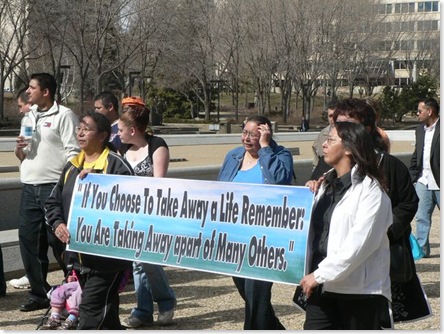
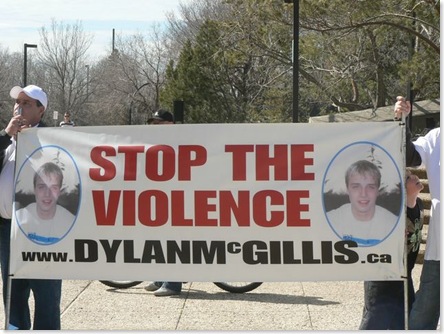
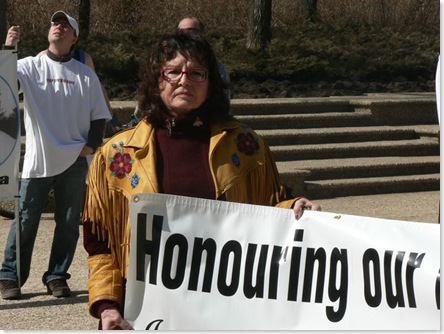
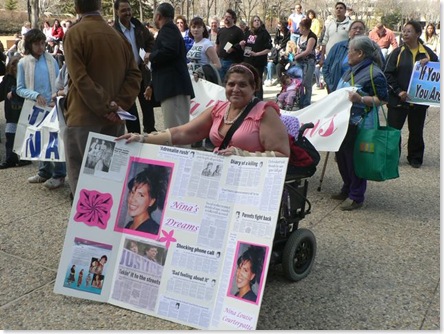
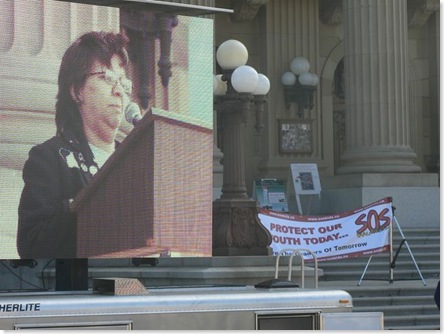
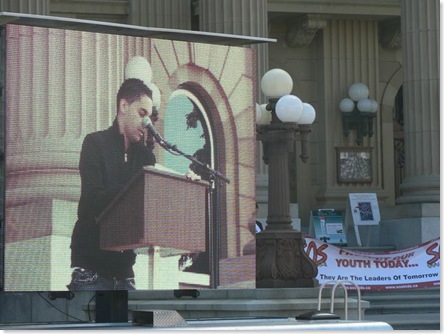
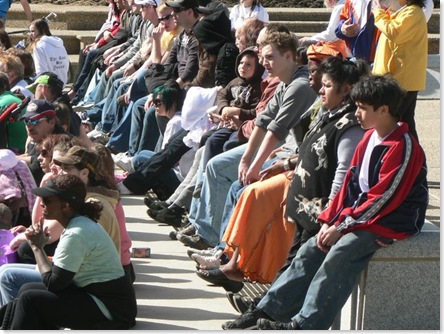
You nailed it again, thank you, and good for you, being there at the rally. Though you know we don’t agree as to why (or to what degree) we’ve made progress on our understanding that perpetrators have generally also been victims themselves, we do agree on the truth that justice can’t possibly be served if we look no further than the surface. And in my darker, less optimistic moments (which I have few of ha, ha), I fear that justice and mercy are mutually exclusive, impossible dreams…justice for one means little mercy for the other; mercy for one means little justice for the other. In those darker moments, I fear that the kiss between mercy and justice you spoke of is an unattainable dream.
Well written!
Do we possibly need to define justice and mercy so that we are speaking about the same things?
I like the story of the Edmonton judge who entered into the native community to work with them on a more communal model of healing for both the ‘victim’ and the perpetrator. Somehow that story brought together both mercy and justice in a way that was healing for all.
Maybe instead of tougher penallties we should look at thinking in a new way.